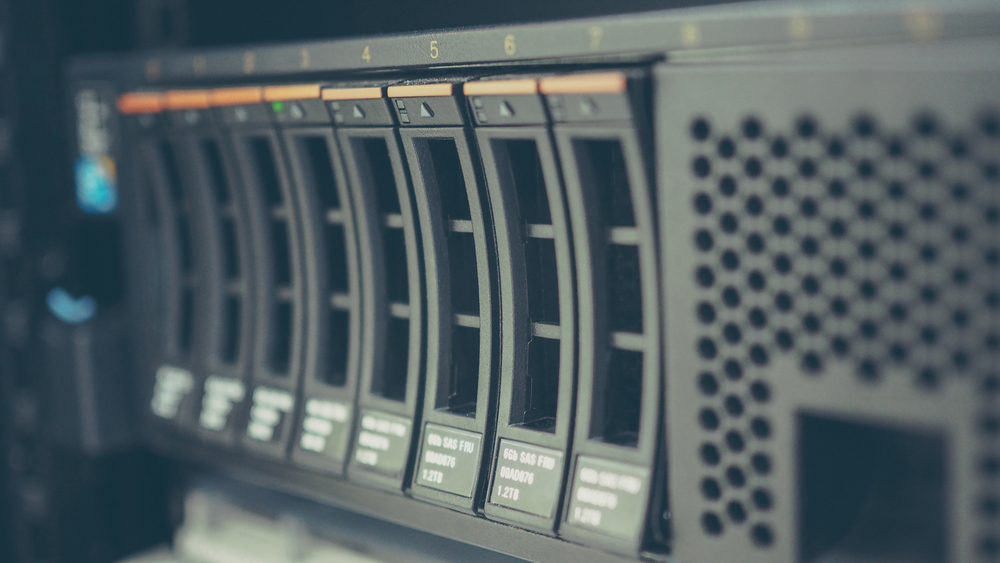Western Digital accused of sneaking inferior SMR tech into NAS drives
The "deceptive" move represented a "ticking time bomb" for customer data, lawsuit claims


Western Digital is being accused of committing “fraud and deception” by replacing the core hard drive technology used in its network-attached storage (NAS) drives with a cheaper, inferior alternative.
The use of Shingled Magnetic Recording (SMR) technology in WD Red NAS drives means they’re unfit for purpose, putting customer data at risk and makes them unsuitable for use in NAS devices, a legal document claims.
NAS drives are conventionally built using Conventional Magnetic Recording (CMR), also known as Perpendicula Magnetic Recording (PMR). SMR is a technology developed to fit more data on a disk by overlapping magnetic tracks, and is less expensive to produce, but is considered to have slower writer performance.
The company “surreptitiously sneaked” SMR technology into the devices without any disclosure, within the past year, to shave costs while not changing the selling price, according to the class-action lawsuit.
News of the switch was confirmed in April, the lawsuit claims, with Western Digital previously failing to adequately disclose this to its customers. Customers, as a result, reported slower write performance and even some storage failures in WD Red NAS drives.
“These WD Red NAS hard drives with the inferior SMR technology are potential ticking time bombs that risk the destruction of customer data and files at any moment,” the lawsuit claims, “because the data recovery and redundancy features of the NAS device may fail during the RAID rebuilding process.”
This RAID rebuilding process, also known as resilvering, will fail as SMR hard drives cannot handle the continuously sustained writes and heavy random writes which occur out of need. Customers are also unable to expand their NAS storage capacity by adding more hard drives, which requires a similar resilvering process.
Get the ITPro daily newsletter
Sign up today and you will receive a free copy of our Future Focus 2025 report - the leading guidance on AI, cybersecurity and other IT challenges as per 700+ senior executives
“In fact, the SMR hard drives are simply unable to handle continuous sustained random writes (which often occurs in normal NAS usage) without freezing up and reporting “timeouts” to the NAS device, causing poor performance,” the document continued.
“Ultimately, the WD Red NAS devices are wholly inappropriate for their intended and advertised use. The hard drives are completely worthless for their intended purpose - and are in fact dangerous to customer data.”
The performance of Western Digital’s SMR and CMR NAS drives was put to the test by Serve the Home in light of the news of the lawsuit emerging, with the findings coming as a surprise to expert Will Taillac.
In several benchmarks, read and write tests, the two technologies perform similarly well. On tests focused on NAS RAID arrays, performance is much slower. On the file copy test, for example, performed immediately after completing the drive preparation process, the SMR drive was significantly slower.
The RAIDZ resilver time test, meanwhile, took three CMR drives under 17 hours to complete, with the SMR drive took 230 hours to perform an identical task.
“The WD40EFAX performed so poorly that we repeated the test on a second disk to rule out user error; the second disk exhibited the same extremely slow resilver speeds,” Taillac said. “We also tested the SMR drives before and after the CMR drives to ensure that it was not a case of something happening due to the order of testing.
“The only positive here is that the resilver did finish, and encountered no errors along the way, but the performance operating in the RAIDZ array was completely unacceptable.”
IT Pro approached Western Digital but a spokesperson said the company generally doesn’t comment on litigation matters.

Keumars Afifi-Sabet is a writer and editor that specialises in public sector, cyber security, and cloud computing. He first joined ITPro as a staff writer in April 2018 and eventually became its Features Editor. Although a regular contributor to other tech sites in the past, these days you will find Keumars on LiveScience, where he runs its Technology section.
-
 Should AI PCs be part of your next hardware refresh?
Should AI PCs be part of your next hardware refresh?AI PCs are fast becoming a business staple and a surefire way to future-proof your business
By Bobby Hellard
-
 Westcon-Comstor and Vectra AI launch brace of new channel initiatives
Westcon-Comstor and Vectra AI launch brace of new channel initiativesNews Westcon-Comstor and Vectra AI have announced the launch of two new channel growth initiatives focused on the managed security service provider (MSSP) space and AWS Marketplace.
By Daniel Todd